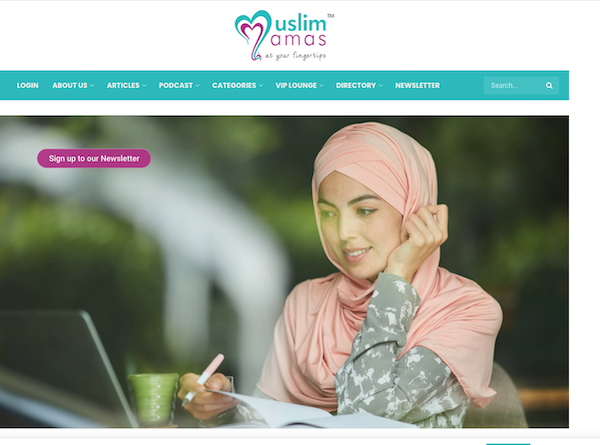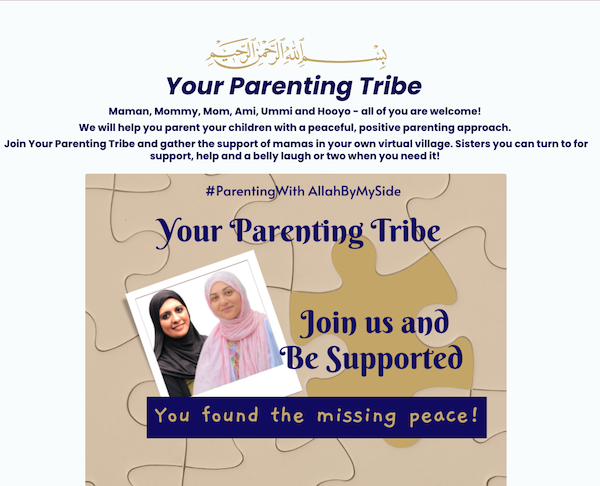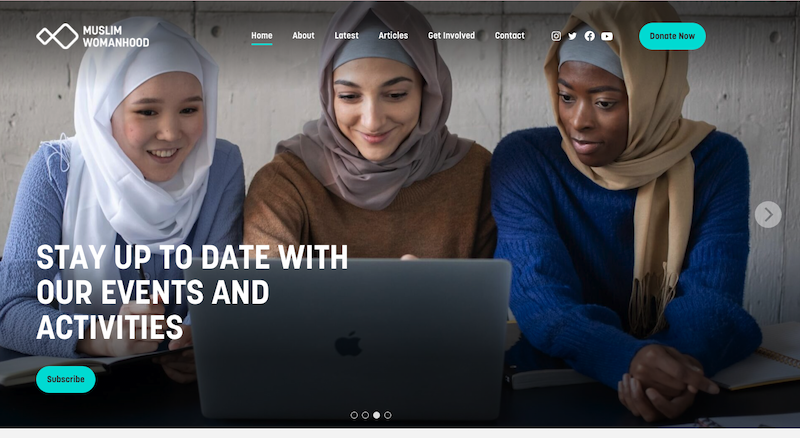Muslim women’s initiatives and organisations have an extensive and dynamic digital presence. In this Gender: Women collection, we have profiled a selection of these, and hope to add to them over the course of our project.
The use of the digital space by Muslim women’s initiatives ranges widely. For some, it is a matter maintaining a cyber ‘home’ which documents and profiles their existing ‘in person’ activities. We see in this archive that this is the case with bodies such as the Muslim Women’s Council and the Muslim Women’s Collective. Both of these are regional grassroots networks with physical premises and which run regular community projects – ranging from educational courses to soup kitchens, from conferences and residentials to interfaith projects, as well as maintaining relations with local executive and government bodies.

For others, the internet has been the primary site of their operation – these being initiatives which have grown organically out of conversations and exchanges on social networking sites. Muslim Mamas is a good example of this. Originating in 2010 out of a personal Facebook post from Nargis Jahan Uddin (later founder of the platform). Uddin’s post was a moment of venting, as a new mother, around the intense and demanding experiences of mothering a young toddler – but perhaps because of this ‘everydayness’, she found that it resonated widely among her friends and networks. Although the idea of a social media space for Muslim mothers to share experiences, dilemmas and ask questions initially took off among her friends, it very soon mushroomed to become a Facebook group with thousands of participants, and then to encompass multiple sub-groups as well as a presence on a range of other platforms and a standalone website of its own, eventually generating occasional in-person activities and partnerships.

Service providers have used the digital space effectively to showcase their work and to present potential clients with information, resources and accessibility. Your Parenting Tribe is one such provider – a collaborative network of professionals offering a variety of different services and expertise through courses, coaching, counselling among others. The website in this case is something of a hub where all these offerings cohere with one another under an overall holistic philosophy of supporting Muslim mothers. In cases such as this, the hub exists exclusively online, with no in-person office or base. Through operating only via a website, the service provider offers a type of accessibility where clients do not have to navigate administrative gatekeeping or community spaces to access these services – rather, they have a more direct line both in selecting the type of service they wish to access and in approaching potential service providers, on their own terms, and from an environment of their preference (e.g. from home, and their personal device). This is a feature which was raised positively by a number of our focus group participants, who talked about feeling isolated or experiencing hostility in community spaces. One participant talked favourably of being able to access religious services online, from the comfort of her own home because:
‘(in the community) I’ve always been told off. I’ve always been told why are you doing this? Of why are you doing that? And it’s like, why, why, why?’[1]

In some contrast to purely service providing initiatives, platforms such as Muslim Womanhood also offer services in the form of training courses, their messaging and content straddles the activist and the scholarly. This is commensurable with the fact that the platform itself is so closely built around the interests and public persona of its main figure, Shaykha Fatima Barkatulla.
The Qarawiyyin Project also falls somewhat into the scholarly category – but again with a clear niche that it seeks to fill – that of offering a positive space for Muslim women’s discourse to be revived, rediscovered and actively nourished. In line with other platforms, it situates itself within a long heritage of Muslim women’s intellectual activity and scholarship and is self-consciously contextualised with broader Muslim religious and political discourse.
It is interesting to consider how the content hosted by these various platforms gives a snapshot into the multitude of ways in which Muslim women’s initiatives make use of the digital space, and how Muslim women access and interact with the resources online – whether alongside, or in preference to, their accessing of resources and interactions in person.
Digital British Islam – Gender: Women Collection
[1] Focus group participant, online focus group held on 30th November 2022.
